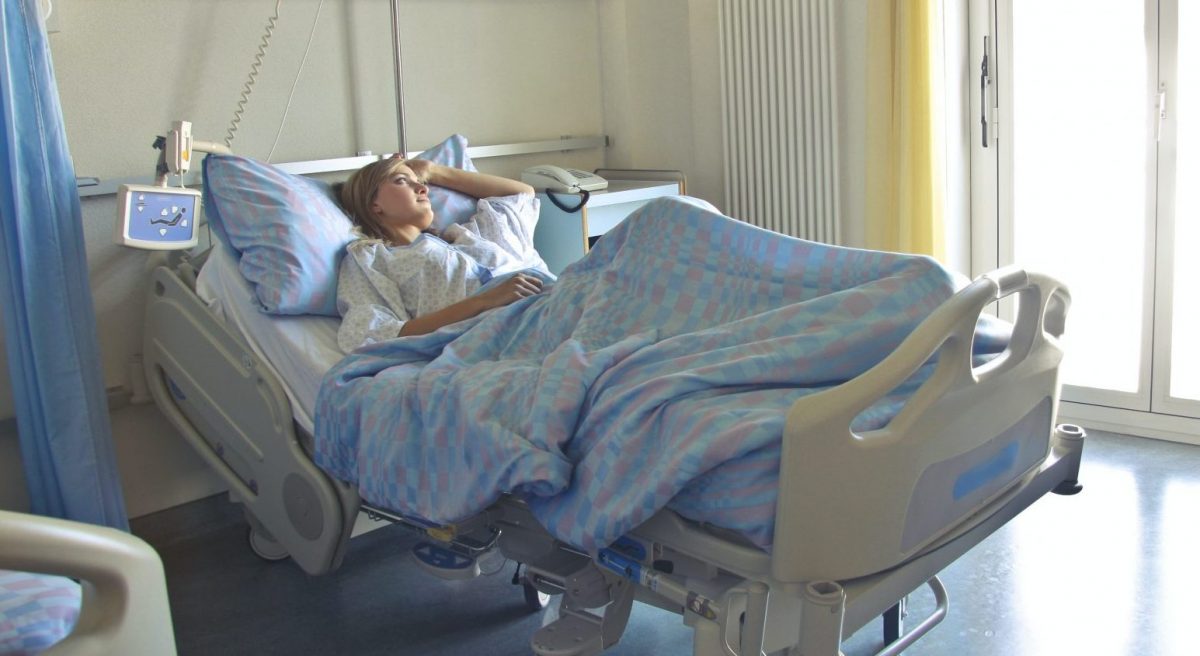Do you lie awake at night wondering how your body would cope with a Covid-19 infection? If so, you’re not alone: it’s certainly crossed my mind in recent weeks. Perhaps I’d barely notice it. Then again, as a 50-something asthmatic, it’s possible I’d end up as “that patient”, requiring critical care on a ventilator to prevent my lungs filling with fluid.
What to do? A fellow doctor suggests we stay in lockdown until a vaccine is developed, but what if that day never arrives? As with other viruses, there is no guarantee that scientists will create a successful vaccine for this coronavirus. Besides, a never-ending lockdown is wholly unrealistic.
In my view, the best option is to be proactive, and that means doing what we can to avoid becoming “that patient”. That starts with the immune system. Why? Because although these are early days in our understanding of this coronavirus, we know the strength of our immune system is key. Let’s see how it works by using the example of vaccination: a vaccine injection presents the immune system with a small part of a virus, which encourages our white blood cells to build a defence against it. In that way, if we are ever exposed to the full virus in the future, our body’s immune system has the weapons to respond.
This virus – SARS-CoV-2 to give it its proper name – is described as a “novel coronavirus”. It’s novel because it is new to our immune system. This requires our full spectrum of immune cells to recognize this new invader, kill it and develop a memory to prevent it successfully attacking again. Whichever way we look at it, a good immune system is vital for good health.
Viral load
What makes one person barely notice a Covid-19 infection and another end up on a ventilator with a cytokine storm causing fluid in the lungs or organ failure? As I said, these are early days, but two likely candidates are the power of the infection or the weakness of the immune system.
Let’s start by looking at the size of the infection, otherwise known as the viral load. If 10 infected people cough on me, would my infection be worse than if only one had done so? In the first instance, the number of viruses entering my body would presumably be far higher, so my infection should be worse. But is there any evidence that this high viral load does indeed give a more serious infection?
A useful place to look is the data on hospital frontline staff, who are exposed to multiple ill patients daily. A Centers for Disease Control (CDC) study in April showed that at least 10 percent of Covid-19 cases in the U.S. have been found in healthcare workers.1 This is high, and suggests exposure to a high viral load makes us more vulnerable to becoming infected. That, logically enough, supports the idea of social distancing to prevent infections.
However, 90 percent of the healthcare workers in this study did not need hospitalization. This is in keeping with the general population, suggesting that it is not the viral load – or not just the viral load – but something else that causes an infection to become severe.
What might that be? There has been plenty of noise on the topic with suggestions ranging from the presence of 5G-network towers (a discredited claim) to asthma, obesity, hypertension, age, gender and race.
In recent weeks, studies from China, Italy, the U.S. and the UK have shed light on likely risk factors – although, as is to be expected in a global health emergency, many aren’t peer-reviewed so we must be cautious when interpreting their findings. That said, we can conclude with some certainty that age is a key risk factor – as are problems linked to being obese. Why might that be and what can we do about it?
Ageing and risk
That takes us back to the immune system. A study from China in February found 83 percent of Covid-19 patients who needed hospital admission had low levels of white blood cells. Our white blood cells fight infections, so it makes sense that a low white cell count would mean a more serious Covid-19 infection.2
The following month, an Italian study found the mean age of those who died from Covid-19 was 79.5 years, with 96 percent of deaths of people above 60. That echoes findings elsewhere. In China, 80 percent of coronavirus deaths were in the over-60s.3 In South Africa – with a much lower number of dead thus far – 60.1 percent of deaths are in the over-60s.4 Being older is clearly a very significant risk factor for developing a more serious infection. (On a positive note, a New York study showed that, although people aged 75+ were 67 times more likely to go to hospital with Covid-19 than younger people were, they were only 2.6 times more likely to have a severe infection needing ICU support.5)
You might conclude that there is nothing you can do about being older. That’s certainly true when it comes to the years on the clock, but there is much that you can do to tackle the key question in this current pandemic: Why older people are more susceptible to serious infection. A 2016 study – which of course predates this pandemic – found that, as we age, our white blood cell count drops while our inflammatory cytokines rise.6 Logically enough, if we can maintain a good immune system and a low inflammatory state as the years pass, then we should have a better chance of staving off serious infections.
Obesity
The second major risk factor is obesity – along with the various illnesses that come along with having a too-high Body Mass Index (BMI). A UK study found that by early April, ICUs had admitted nearly 7,000 Covid-19 patients, nearly three-quarters of whom were overweight or obese.7
Why might that be? Possibly because fat releases chemicals that inflame the body, some with odd names such as Interleukin-6 (IL-6). For its part, Covid-19 also triggers the body to release inflammatory chemicals, which are what kick-start our immune system to battle the virus. However, if we are overweight or obese, then we are already inflamed with an excess of IL-6 from our fat stores. That means once the virus attacks, we run the risk of an over-exaggerated inflammatory response. In this case, it’s not the viral infection per se that kills us, but what is called a “cytokine storm”, which triggers excess fluid in the lungs and blood clots in the arteries.8
I said earlier that being overweight drives various illnesses. The modern lifestyle of minimal exercise, fizzy drinks and junk food is the primary driver of the condition called “metabolic syndrome”. This is the toxic end of obesity: people aren’t just overweight – they are now carrying the beginnings of modern chronic illnesses such as hypertension, diabetes, heart attacks and strokes. A CDC study found almost 90 percent of hospitalized patients globally have at least one of these diseases of metabolic syndrome.9
The foods that drive obesity and metabolic syndrome don’t only drive inflammation; they can also directly weaken our immune system every time we consume them.10 The good news is that we can quickly reverse this state. At my clinic we’ve seen that eliminating processed foods and fizzy drinks from the diet can reduce a patient’s inflammatory markers within two weeks.
What next?
Even if a vaccine were to fall from the skies tomorrow – and it won’t – a healthy immune system is essential if we are to be able to overcome this virus and fight off the next pandemic. Although my asthma is a mild risk factor for a nasty Covid-19 infection, the more likely candidates that would send me to the ICU are a weak immune system and a diet of junk food that would inflame my body.
What can I do about that? Quite a lot, as it turns out:
1. As a 50-something, I would start by boosting my immune system:
- A basic blood test will show the state of my white blood cells. A low white cell count means I should get more sleep and better-quality sleep, reduce my stress and perhaps take zinc, selenium and vitamin D. Immune-boosting injections like Beriglobin can help further.
- A separate blood test will show if my testosterone level is low. Gently increasing that with mild testosterone-replacement therapy would further support my immune system.
- A daily 20-minute dose of intense exercise will boost my immune system. (In contrast, running or cycling for three hours might weaken it.)
- Allergies at home can lower my immune system. Living in lockdown with my two border collies and my cat has worsened my hay-fever – so I need to keep them out of the bedroom and vacuum regularly to reduce the allergens and support my immune system.
2. And, like people of any age, I would look to cut inflammation by cleaning up my diet:
- The simplest way to do this is to remove processed foods, alcohol, starch and sugar. That will reduce inflammation and the risk of illness.11 Many of us have found that during lockdown we are comfort-eating more than normal. Why? I talk about that in a chapter in my book Younger for Longer – we comfort-eat because one or more of the 3 ‘S’s are upending our lives: a lack of sleep, too much stress or excessive sadness. Improving our sleep and working on stress and sadness will reduce the need to comfort-eat.
What else can we do? Social distancing might see me avoid getting Covid-19 for a while, but the chances are pretty high that at some stage I’ll get this virus or the next one. This reinforces the importance of looking after myself. The evidence suggests that keeping my immune system healthy and eating a good diet mark the most reliable ways to ensure I don’t become “that patient”.
Dr Duncan Carmichael is a medical doctor with 25 years of experience in the profession, and the author of ‘Younger for Longer: How You Can Slow the Ageing Process and Stay Healthy for Life’. He is a regular speaker at conferences on healthy ageing, and has written numerous articles on the subject. He founded and runs the Institute of Healthy Aging in Cape Town. His book ‘Younger for Longer’ is available from IHA and online from amazon here.
References:
1Characteristics of Health Care Personnel with Covid-19 – United States, February 12 -April 9, 2020. CDC. April 17 2020: 69: 477-481.
2Guan W. et al. Clinical Characteristics of Coronavirus Disease 2019 in China. NEJM. 28 Feb 2020: https://www.nejm.org/doi/full/10.1056/NEJMoa2002032
3Onder et al. Case-fatality rate and Characteristics of patients dying in Relation to Covid-19 in Italy. JAMA. March 2020. https://jamanetwork.com/journals/jama/fullarticle/2763667
4Chambers D. Timeslive. https://www.timeslive.co.za/news/2020-05-02-58-of-south-africans-killed-by-covid-19-are-men-mkhize-reveals/
5Petrilli C et al. Factors associated with hospitalization and critical illness among 4103 patients with Covid-19 disease in New York City. BMJ Medrxiv. April 2020: https://www.medrxiv.org/content/10.1101/2020.04.08.20057794v1
6Valiathan R et al. Effects of Ageing on the Immune System: Infants to Elderly. Human Immunology. 2016: https://onlinelibrary.wiley.com/doi/10.1111/sji.12413
7Covid-19 Report. ICNARC. 24 April 2020: https://www.icnarc.org/Our-Audit/Audits/Cmp/Reports
8Ruan Q et al. Clinical predictors of mortality due to Covid-19 based on an analysis of data of 150 patients from Wuhan, China. Intensive Care Medicine. March 2020:https://link.springer.com/article/10.1007/s00134-020-05991-x
9Frankl R. Almost 90% of COVID-19 admissions involve co-morbidities. Medscapes. 10 April 2020: https://www.medscape.com/viewarticle/928531
10Sanchez A et al. Role of sugars in neutrophilic phagocytosis. Am J Clin Nutrit. 1973. 1180-84.
11Hert K et al. Decreased consumption of sugar-sweetened beverages improved selected biomarkers of chronic disease risk among US adults: 1990 to 2010. Nutr Res. 2014: 34: 58-65.

